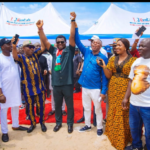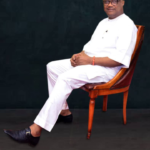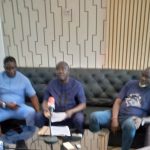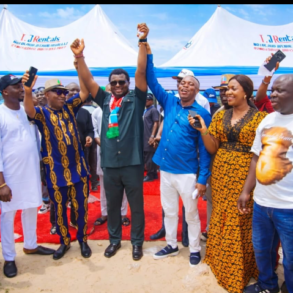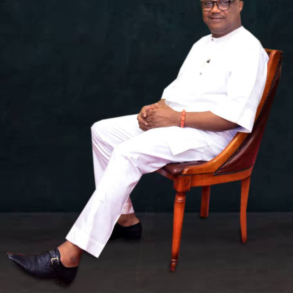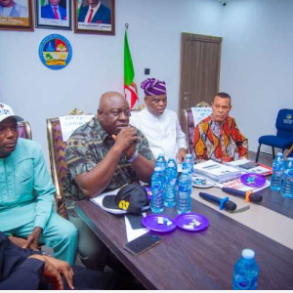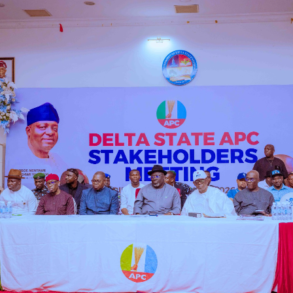By TONY EKE
The official declaration of June 12 as Democracy Day six years ago ranked as one of the best policies ever initiated by President Muhammadu Buhari. That act memorialising June 12 earns an occasional respect from me each time I subject the tenor of his tenure to retrospection.
For once, the former leader temporarily ditched his ethnocentric approach to issues and acted in the larger national interest as he commendably recognised the sacrificial contributions of the acclaimed winner of the botched poll, Chief Moshood Abiola whose death was deemed as vicarious.
While anyone with a probable superior argument might choose to differ, it’s inconceivable that without that tragic course of Abiola and other cataclysmic events, the implantation of a variant of democracy in Nigeria today would have remained in abeyance.
I’m therefore tempted to journey into a brief reminiscences because a number of persons in my generation have some attachment to that historic election. I’m enamoured with its romanticisation being the first poll I had voted as a citizen. In retrospect, the year 1993 formed a part of the decade of my gradual maturation into adulthood after coming of age.
Fresh from journalism school in Lagos and imbued with zeal to walk the path patterned after a conscientious brand of practice, I had personally looked forward to that election with a great expectation, an optimistic fervour flavored by an incipient promise of a secured process that would deliver a good result.
However, alas it ended as a stillbirth, the type that not only filled the mind of a conscious being with angst and revulsion but also predisposed some persons to question the continual basis of Nigeria’s seasonal cycle in infamy and retrogression.
That eventful day had offered a pathway to Nigeria to rise above those impediments to its progress by unfolding the renascent course of a new Nigeria and its concomitant boost to unity and brotherhood among disparate entities.
Its unique features such as the fairness of the process, its peacefulness, and massive turnout testified to the quest among Nigerians to consign serial dictatorships to the history dustbin and open a new chapter of growth envisioned from the promises of representative governance as seen elsewhere.
It’s however not surprising that much of the activities of June 12 anniversary this year was centred on recollections of the travails of pro-democracy activists and assessment of Nigeria’s democratic journey in the last quarter of a century. A primary notification that the leading lights of democracy struggles who are still alive are enjoying recognition much more than they received in the first decade of democratic practice.
The essence, I believe, is to inspire our younger compatriots to grow in love for their country and work in exemplary ways that would enhance Nigeria’s development. But I quite believe too that such exhortative tendency will likely resonate more with the target audience if those making the calls would lead by example.
The post-June 12 era, that is 1999 till date has grown by leaps and bounds based on the number of years the Fourth Republic has survived. Apart from the conduct of four relatively successful transitional elections without interference unlike earlier republics torpedoed by military overthrows, there is a recognisable improvement of infrastructure in many parts of the country.
Whoever holds a contrary view to this line of thought should just imagine what would have become of Nigeria if the military had remained in political governance to this day. My recognition of infrastructure development is however relative to the vision and disposition of the president and governors at the national and sub-national levels.
But one visible aspect that diminishes the benefits of democracy at the present time lies with the continuous deterioration of the welfare of the citizenry. The democratisation of suffering in the land today and the uncertainty of tomorrow have incrementally weakened the trust of majority of people in the promise of a better life routinely articulated by elective office seekers during campaigns.
Of course, these mounting problems have provoked the discerning amongst us to questions about the centrality of the citizens in Nigeria’s democracy. It does seem that the unique definition of democracy by Abraham Lincoln with his emphasis on the primacy of the people is losing relevance by the day in Nigeria, judging from our plaintive collective experiences.
Away from the material poverty of our people lies the apparent disinterest of the democrats in toeing the path of accountability and transparency. This indispensable aspect of democracy is being observed in the breach across the country.
Budgets are designed and padded at the federal level to benefit the legislators instead of the very people whom sovereignty resides with. Just recently, a major decision such as reversion to the old National Anthem was undertaken by the National Assembly without gauging the pulse of the constituents through calls for submission of memorandum and subsequent holding of public hearing.
On a comparative scale, democracy has been beneficial in some way as gleaned from the largely successful seasonal elections and enjoyment of human rights guaranteed the citizens by the constitution. These valuable gains have helped to enrich the dominant discourses on the need for sustaining the current political dispensation despite the manifest issues assailing its optimal delivery to the people’s expectations.
It’s still a learning process which entails greater commitment of the learners to certain intricacies so required to attain a level of near perfection. Sacrifice and continuous practice are the keywords.
What’s direly needed is for the federal government to review its economic policies for the benefit of the people. Most Nigerians, particularly the vulnerable are currently contending with a big noose around their necks.
The emphasis on the national government is because the federal government warehouses much of the national resources and initiates macroeconomic policies which either inhibit or promote growth across the country.
It’s important for us to undertake a periodic re-examination of the course, content, and impact of democracy on the people as a way of growing our democracy. Although the system in place partially takes a coloration of our socio-cultural peculiarities, we must reform it and seek ways to facilitate its attainment of the rank of the quintessential model. Anchoring democracy on the people and catering to their demands is imperative as we accord June 12 a space in our national history.
Let it be known that a democratic system which isolates the people either in policy conception or delivery of social infrastructure is deceptive, merely coated in the essential colours associated with democracy

